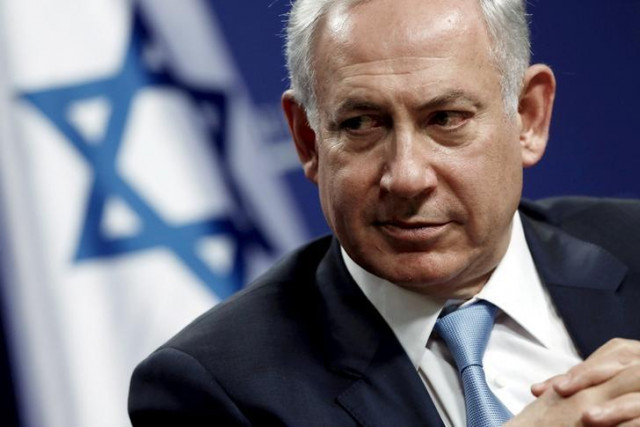Should Pakistan revisit its Israel policy?
Islamabad at some stage will have to revisit its approach

A Reuters file photo of Israel's Prime Minister Benjamin Netanyahu.
Pakistan does not recognise Israel and this policy is largely driven by the stance taken by other Muslim countries. Israel’s continued occupation of Palestinian territory and its forces’ atrocities against Palestinians have often invited strong reaction from the government and people of Pakistan alike. Pakistan’s stance is just and based on international law and the relevant UN Security Council resolutions. But in the real world, principles and morality often take backstage as countries look after their own interests first. For instance, if Pakistan is to follow the principle of morality then it must sever ties with Britain, which was responsible for the current Israeli-Palestinian conflict. Pakistan must not also have diplomatic relationship with the United States, which is the principal backer of Israel.
It is because of this realpolitik that many countries particularly in the West often turn a blind eye towards Israeli atrocities.
Not only the Western countries but also many Muslim countries, which in the past took a strong and principled stand against Israel, are now increasingly warming up to the Jewish state. Saudi Arabia, which portrays itself as leader of the Muslim world, is also reaching out to Israel. It is an open secret that the two countries have established a working relationship. The shift in the Saudi policy stemmed from the changing strategic environment in the Middle East. Many other Muslim countries have also embraced this change. Recently Israeli Prime Minister Benjamin Netanyahu visited Oman. After the landmark visit, Oman’s Foreign Minister publicly stated that the time has come to recognise Israel. Similarly, senior Israeli ministers were recently seen visiting the United Arab Emirates, another Muslim country that in the past was opposed to the Jewish state.
This does not mean Pakistan should also follow its friends in the Arab world. These developments, however, indicate that countries always think about their interests first. Given this, Islamabad at some stage will have to revisit its approach. And this change in approach must be driven by Pakistan’s own interests. There were instances in the past where Pakistan had compromised on its interests for others. Prime Minister Imran Khan in a policy statement soon after taking charge stated categorically that Pakistan’s foreign policy would now be driven by its national interest.
Pakistan recognising Israel is perhaps a long way at this stage. But it is also true that foreign policy cannot be static and has to evolve with time. Pakistan may not need to bring any paradigm shift in its policy towards Israel but it can begin in-house debate to ponder whether its current approach is tenable.
Former military ruler Pervez Musharraf did make an attempt to think out of the box. In 2005, the foreign ministers from Pakistan and Israel held landmark talks in Istanbul. The process, however, could not move further because of the political turmoil in Pakistan and subsequent ouster of Musharraf from power. Can this government replicate that approach not necessarily to appease anyone but keeping in mind the larger interest of the country as well as the changing global realities?
Published in The Express Tribune, November 12th, 2018.
Like Opinion & Editorial on Facebook, follow @ETOpEd on Twitter to receive all updates on all our daily pieces.















COMMENTS
Comments are moderated and generally will be posted if they are on-topic and not abusive.
For more information, please see our Comments FAQ